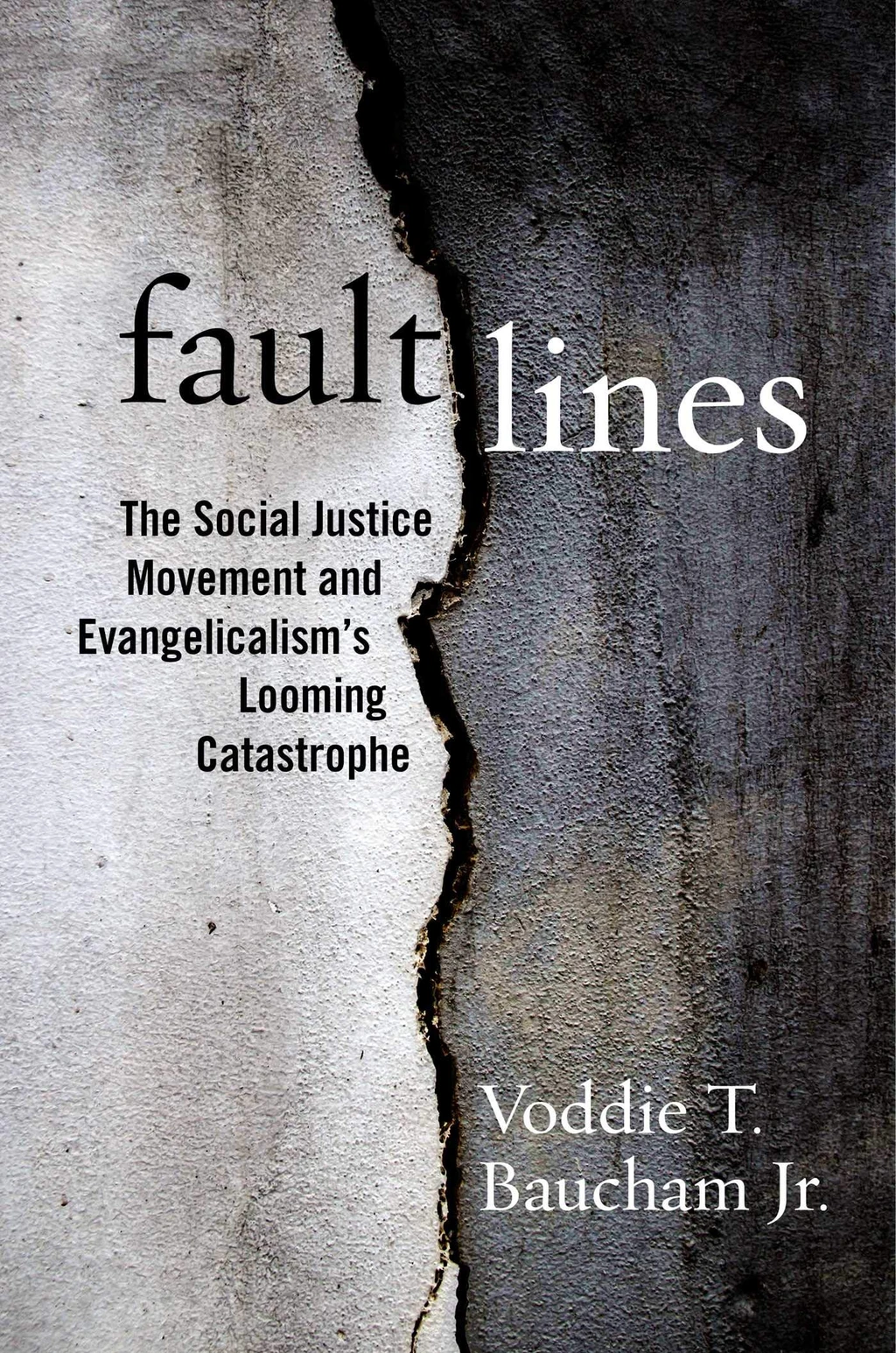
Voddie T. Baucham, Jr.
Reviewed by: Michael L. Myers
Fault Lines: The Social Justice Movement and Evangelicalism’s Looming Catastrophe, by Voddie T. Baucham Jr. Salem, 2021. Hardcover, 270 pages, $17.05 (Amazon). Reviewed by OP pastor Michael L. Myers.
Fault Lines is a careful refutation of Critical Theory and its related ideologies, particularly critical race theory, intersectionality, and antiracism. Voddie Baucham draws from lessons he learned both from his upbringing (chs. 1–2) and decades of study in Scripture and sociology. He argues that these categories of thought are not merely analytical tools but unbiblical worldviews that pervade the social air we breathe. Throughout the book Baucham utilizes the imagery of fault lines and the earthquakes that occur near them to illustrate the damage these ideologies have caused and will continue to cause to evangelical Christianity.
Chapter 3 discusses the requirement to seek true justice and the lamentable mischaracterizations of justice that plague the current “cultural moment” (42). Through careful documentation and measured explanation, Baucham explains the need for truth and the widespread danger of false narratives. While always upholding and affirming the worth and dignity of human life, Baucham reviews the narratives around high profile deaths, including Tamir Rice, Philando Castile, Michael Brown, and George Floyd. His goal is neither to condemn nor justify the police; rather, he highlights the disparities in the narratives woven about these names while introducing other names that are unknown (47). In the following chapters, he identifies the underlying worldview assumptions driving the widespread acceptance and propagation of dangerous false narratives (63).
Chapters 4–6 form the book’s theological backbone. Baucham outlines how the “Cult of Antiracism” is a new religion entirely distinct from biblical Christianity. “This new body of divinity” includes its own erroneous versions of original sin, law, gospel, martyrs, means of atonement, new birth (wokeness), liturgy, canon, theologians, and catechism (67). Baucham has coined the phrase “Ethnic Gnosticism” to put a name to “the idea that people have special knowledge based solely on their ethnicity” (92), a concept similar to standpoint epistemology.
Baucham’s discussion of abortion in chapter 9 and critique of Black Lives Matter in chapter 10 are exceedingly helpful. The final chapter is one of the most powerful statements this reviewer has read related to these serious matters. The right way to deal with racial enmity is through the gospel of free grace in Jesus Christ. The framework through which Christians need to interpret even the most heinous actions of the past is the unsearchable providence of God (Acts 2:22–24). Through forgiveness, love, biblical repentance, and pursuit of biblical justice, the Christian church can lead the way in dealing with the heart of these issues.
Voddie Baucham’s Fault Lines is full of solid principle and righteous polemics. Although Baucham does not shy away from “naming names,” he also affirms his love for those within the church with whom he disagrees, and lets the weight of truth do its work. I bless God for Baucham’s courage in writing this work and warmly commend it to readers of New Horizons and members of the OPC.
April 27, 2025
The Devoted Mind: Seeking God’s Face in a World of Distraction
April 20, 2025
April 13, 2025
Suffering: God’s Purpose in Our Pain
April 06, 2025
Sunday Matters: 52 Devotionals to Prepare Your Heart for Church
March 30, 2025
On the Trail with a Missionary
March 23, 2025
Midnight Mercies: Walking with God Through Depression in Motherhood
March 16, 2025
© 2025 The Orthodox Presbyterian Church